Related Research Articles

Bartholemew William Barclay "Bat" Masterson was a U.S. Army scout, lawman, professional gambler, and journalist known for his exploits in the late 19th and early 20th-century American Old West. He was born to a working-class Irish family in Quebec, but he moved to the Western frontier as a young man and quickly distinguished himself as a buffalo hunter, civilian scout, and Indian fighter on the Great Plains. He later earned fame as a gunfighter and sheriff in Dodge City, Kansas, during which time he was involved in several notable shootouts.

Robert A. Clay Allison also known as Clay Allison was a cattle rancher, cattle broker, and sometimes gunfighter of the American Old West. He fought for the Confederacy in the Civil War. Allison had a reputation for violence, having survived several one-on-one knife and gunfights, as well as being implicated in a number of vigilante jail break-ins and lynchings. A drunken Allison once rode his horse through town nearly naked—wearing only his gunbelt. Later most reports stated that he was dangerous not only to others but to himself, accidentally shooting himself in the foot.

High Plains Drifter is a 1973 American Western film directed by Clint Eastwood, written by Ernest Tidyman, and produced by Robert Daley for The Malpaso Company and Universal Pictures. The film stars Eastwood as a mysterious stranger who metes out justice in a corrupt frontier mining town. The film was influenced by the work of Eastwood's two major collaborators, film directors Sergio Leone and Don Siegel. In addition to Eastwood, the film also co-stars Verna Bloom, Mariana Hill, Mitchell Ryan, Jack Ging, and Stefan Gierasch.
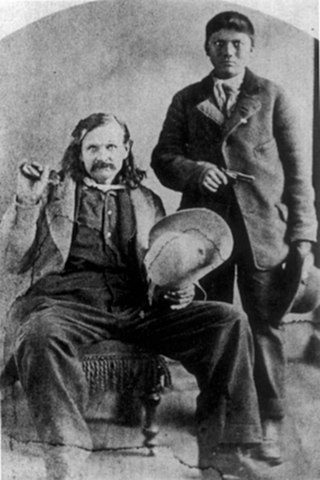
John W. Swilling was an early pioneer in the Arizona Territory. He is commonly credited as one of the original founders of the city of Phoenix, Arizona. Swilling also played an important role in the opening of the central Arizona highlands to white settlement. His discoveries resulted in a gold rush to the region, and this in turn led to the establishment of Arizona's first territorial capital at the mining town of Prescott.

Norman Eugene "Clint" Walker was an American actor. He played cowboy Cheyenne Bodie in the ABC/Warner Bros. western series Cheyenne from 1955 to 1963.

Thomas Morgan Woodward was an American actor who is best known for his recurring role as Marvin "Punk" Anderson on the television soap opera Dallas and for his portrayal of Boss Godfrey, the sunglasses-wearing "man with no eyes", in the 1967 film Cool Hand Luke. On TV, he was a familiar guest star on cowboy shows. On the long-running Western Gunsmoke, he played 16 different characters in 19 episodes, the most such appearances of any actor on the show. He also had a recurring role on The Life and Legend of Wyatt Earp.
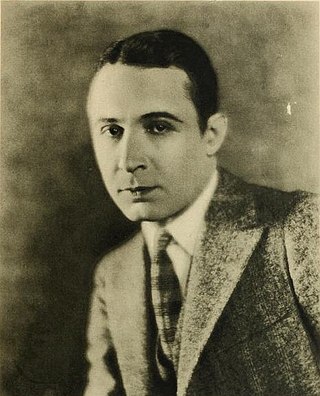
Gerard Montgomery Blue was an American film actor who began his career as a romantic lead in the silent era; and for decades after the advent of sound, he continued to perform as a supporting player in a wide range of motion pictures.
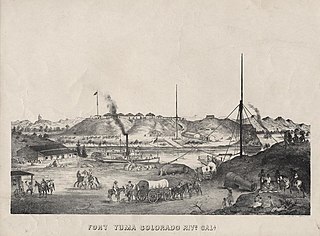
Fort Yuma was a fort in California located in Imperial County, across the Colorado River from Yuma, Arizona. It was Established in 1848. It served as a stop on the Butterfield Overland Mail route from 1858 until 1861. The fort was retired from active military service on May 16, 1883, and transferred to the Department of the Interior. The Fort Yuma Indian School and the Saint Thomas Yuma Indian Mission now occupy the site. It is one of the "associated sites" listed as Yuma Crossing and Associated Sites on the National Register of Historic Places in the Yuma Crossing National Heritage Area. In addition, it is registered as California Historical Landmark #806.

The Tall Men is a 1955 American western film, directed by Raoul Walsh, starring Clark Gable, Jane Russell and Robert Ryan. The 20th Century FoxDeLuxe Color film was produced by William A. Bacher and William B. Hawks. Sydney Boehm and Frank S. Nugent wrote the screenplay, based on the 1954 novel of the same name by Heck Allen. Filming took place in Sierra de Órganos National Park in the town of Sombrerete, Mexico.

The Drum is a 1938 British Technicolor film based on the 1937 novel The Drum by A. E. W. Mason. The film was directed by Zoltan Korda and produced by Alexander Korda. It stars Sabu, Raymond Massey, Valerie Hobson, Roger Livesey and David Tree.
George Murray Sullivan was an American politician who served as the 26th mayor of the City of Anchorage from 1967 to 1975 and the 1st mayor of the Municipality of Anchorage from 1975 to 1981.

Thomas Harbo Rynning was an officer in the United States Army who served with Theodore Roosevelt's Rough Riders during the Spanish–American War. He was also the captain of the Arizona Rangers, warden of Yuma Territorial Prison, and a United States Marshal in San Diego, California.
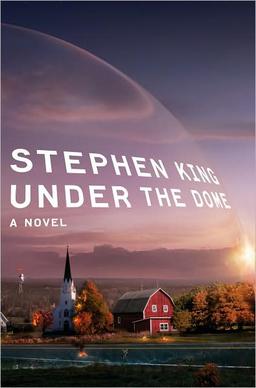
Under the Dome is a 2009 science fiction novel by American author Stephen King. It is the 58th book published by King, and it is his 48th novel. The novel focuses on a small Maine town, and tells an intricate, multi-character, alternating perspective story of how the town's inhabitants contend with the calamity of being suddenly cut off from the outside world by an impassable, invisible glass dome-like barrier that seemingly falls out of the sky, transforming the community into a domed city.
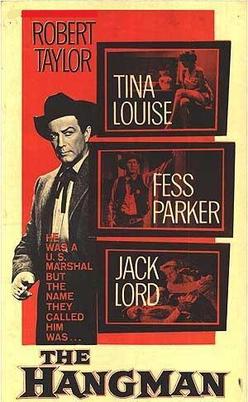
The Hangman is a 1959 American western film directed by Michael Curtiz and starring Robert Taylor, Tina Louise and Fess Parker. It was distributed by Paramount Pictures. The film is based on the short story of the same name by Luke Short.

Go West, Young Lady is a 1941 American comedy western film directed by Frank R. Strayer and starring Penny Singleton, Glenn Ford and Ann Miller. It was produced and distributed by Columbia Pictures.

The Last Outpost is a 1951 American Technicolor Western film directed by Lewis R. Foster, set in the American Civil War with brothers on opposite sides. This film is character actor Burt Mustin's film debut at the age of 67.

The Fairbank train robbery occurred on the night of February 15, 1900, when some bandits attempted to hold up a Wells Fargo express car at the town of Fairbank, Arizona. Although it was thwarted by Jeff Milton, who managed to kill "Three Fingered Jack" Dunlop in an exchange of gunfire, the train robbery was unique for being one of the few to have occurred in a public place and was also one of the last during the Old West period.

Pirates of the Prairie is a 1942 American western film directed by Howard Bretherton and starring Tim Holt, Cliff Edwards and Nell O'Day. Produced by RKO Pictures, it was inspired by the Banditti of the Prairie. The plotline is strikingly similar to the 1940 film Legion of the Lawless. Doris Schroeder is credited with the screenplay for both films.
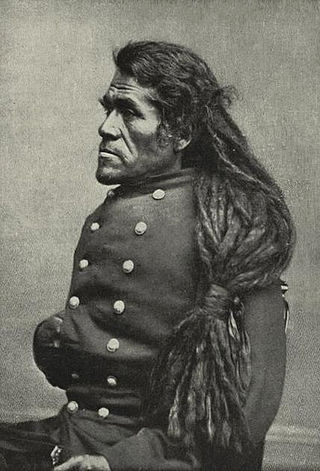
Irataba was a leader of the Mohave Nation, known as a mediator between the Mohave and the United States. He was born near the Colorado River in present-day Arizona. Irataba was a renowned orator and one of the first Mohave to speak English, a skill he used to develop relations with the United States.
References
- ↑ pp. 48-49 Karol, Michael The ABC Movie of the Week Companion: A Loving Tribute to the Classic Series iUniverse, 2008